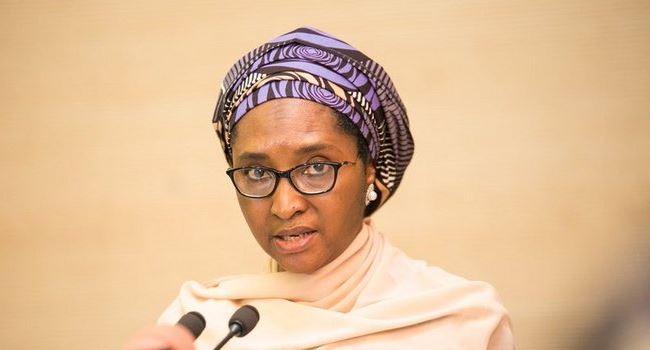Business
Nigeria’s economic growth stunted by insecurity – Finance minister

The Minister of Finance, Budget and National Planning, Zainab Ahmed, said on Monday the current security challenges stunted Nigeria’s economic growth.
The minister disclosed this when she reviewed the National Bureau of Statistics (NBS) latest report on the country’s Gross Domestic Product (GDP) at a press briefing in Abuja.
The agency had last week announced a 5.1 percent GDP growth for Nigeria in the second quarter of this year.
The quarterly economic growth was the country’s strongest in years.
The minister stressed that Nigerian economic growth would have been better if the country had been more secure.
She said the insecurity had affected growth in agriculture and other key sectors of the Nigerian economy.
Ahmed insisted that the Federal Government had been very reasonable while applying for loans to finance critical projects in the country.
She said: “The 2021 second-quarter growth reflects better economic performance compared to the same quarter last year. The same quarter last year we had negative growth of -6.10 percent. It is also better than the first quarter of 2021.
READ ALSO: Insecurity thwarting Nigeria’s economic growth – Buhari
“The service sector recorded a strong performance, growing by 9.27 percent this reporting quarter – representing the fastest growth in this sector since 2010.
“The second-quarter growth of 2021 would have been much stronger than the 5.01 percent, but for agriculture, that recorded a slightly lower growth. A number of bottlenecks within the system, including insecurity, negatively affected the sector. Also, the industrial sector slowed down to -1.3 percent.
“I want to assure you that we are borrowing with very close consideration to the sustainability of the borrowing; the borrowing level for Nigeria today is still 23 percent of the GDP.
“The problem we have in Nigeria is actually that of revenue; when you look at countries that are with the peer group of Nigeria, there are some that had 50 percent growth and now they are at about 70 percent.
“We are at 23 percent despite the escalated borrowing we have had to do in 2020 and also in 2021 to get a good grip on the economic situation that was occasioned by the COVID-19 pandemic and in our case also the crash in crude oil price.”
Join the conversation
Support Ripples Nigeria, hold up solutions journalism
Balanced, fearless journalism driven by data comes at huge financial costs.
As a media platform, we hold leadership accountable and will not trade the right to press freedom and free speech for a piece of cake.
If you like what we do, and are ready to uphold solutions journalism, kindly donate to the Ripples Nigeria cause.
Your support would help to ensure that citizens and institutions continue to have free access to credible and reliable information for societal development.
























